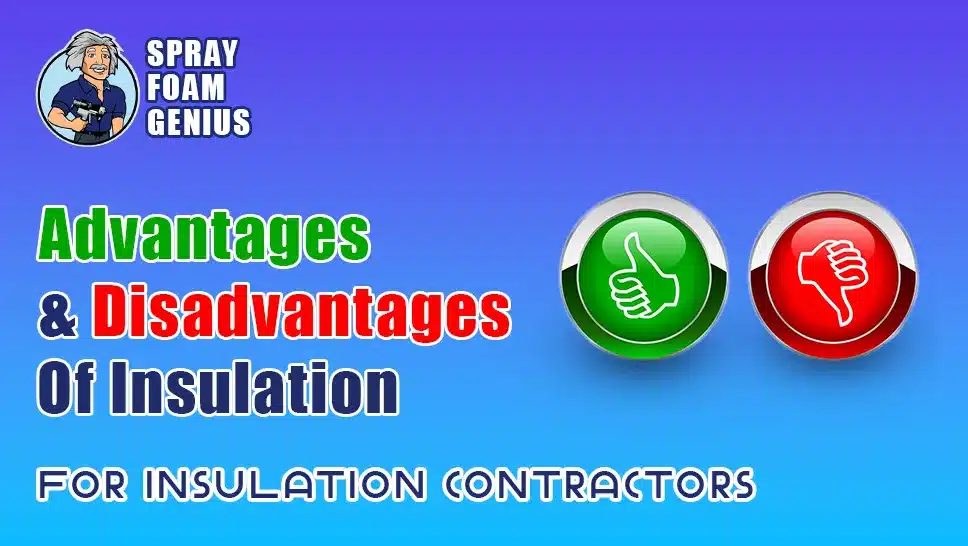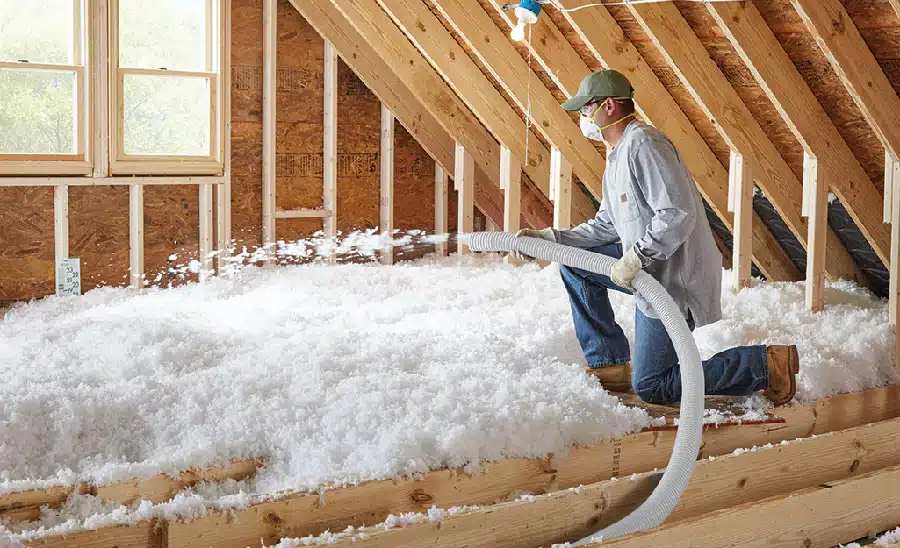
Insulation is a crucial aspect of modern construction that significantly impacts energy efficiency, comfort, and cost-effectiveness in both residential and commercial buildings. As insulation contractors, we understand the importance of this material in creating a sustainable environment while ensuring maximum comfort for homeowners. In this comprehensive overview, we will explore the advantages and disadvantages of insulation, providing valuable insights for the general public residing in the USA and Canada.
Understanding Insulation
Before diving into the pros and cons, let’s clarify what insulation is. Insulation refers to materials that inhibit the transfer of heat, sound, or electricity between different environments. Common types of insulation include fiberglass, cellulose, foam board, and spray-applied materials, each with its unique properties and applications. Choosing the right insulation is essential for optimizing energy efficiency, controlling indoor climates, and enhancing comfort.
Advantages of Insulation
1. Energy Efficiency
One of the most significant advantages of insulation is its ability to improve energy efficiency. Properly installed insulation reduces the amount of heat lost during winter and keeps cool air inside during summer. This leads to lower energy bills, making homes more cost-effective to heat and cool.
- Lower Energy Bills: Insulated homes require less energy for heating and cooling, leading to reduced utility costs.
- Environmental Impact: By lowering energy consumption, insulated homes contribute to reduced greenhouse gas emissions.
2. Comfort
Insulation plays a vital role in maintaining a consistent indoor temperature, enhancing comfort levels for occupants. A well-insulated home ensures that temperatures remain stable, regardless of external weather conditions.
- Temperature Regulation: Insulation helps in preventing drafts and cold spots, leading to a more comfortable living environment.
- Noise Reduction: Certain insulation materials, like soundproofing insulation, reduce noise transmission, creating a quieter and more peaceful home.
3. Increased Property Value
Investing in insulation can increase the resale value of a property. Homebuyers are often attracted to homes with energy-efficient features, including high-quality insulation.
- Market Appeal: Energy-efficient homes appeal to environmentally conscious buyers.
- Return on Investment: The cost of insulation can be recouped through lower energy bills and increased property value.
4. Environmental Benefits
Insulation contributes to a healthier planet by reducing energy consumption and dependence on fossil fuels. The use of environmentally friendly insulation materials, like cellulose, made from recycled paper, can further enhance sustainability.
- Sustainable Options: Many insulation materials are made from recycled or renewable resources, making them environmentally friendly choices.
- Reduced Carbon Footprint: Efficient insulation decreases energy usage, thus lowering the overall carbon footprint of a building.
5. Moisture Control
Proper insulation can help manage moisture levels within a building, preventing mold growth and structural damage. Insulation materials that are resistant to moisture contribute to a healthier indoor environment.
- Mold Prevention: Insulation can help control humidity levels, reducing the risk of mold and mildew.
- Structural Integrity: By preventing moisture infiltration, insulation protects the structural integrity of buildings.
Disadvantages of Insulation

1. Initial Costs
While insulation offers long-term savings, the initial installation costs can be significant. Homeowners may need to weigh the upfront expenses against potential energy savings.
- Investment Required: High-quality insulation materials can be expensive, and installation costs may vary based on the type of insulation and the complexity of the job.
- Budget Constraints: Homeowners with tight budgets may find it challenging to invest in adequate insulation.
2. Installation Challenges
The effectiveness of insulation largely depends on proper installation. Poorly installed insulation can lead to issues such as air leaks, moisture accumulation, and reduced efficiency.
- Professional Installation Needed: Ensuring effective insulation often requires hiring experienced professionals, adding to the overall cost.
- Potential for Errors: DIY installation can result in improper insulation, leading to energy loss and comfort issues.
3. Limited Lifespan
Some insulation materials may degrade over time, losing their effectiveness. Homeowners must consider the lifespan of insulation materials and plan for future replacements.
- Material Deterioration: Certain types of insulation, like fiberglass, can settle over time, reducing their effectiveness.
- Regular Maintenance Needed: Homeowners should regularly inspect and maintain insulation to ensure optimal performance.
4. Health Concerns
Certain insulation materials can pose health risks if not handled properly. For instance, fiberglass insulation can irritate the skin, eyes, and respiratory system during installation.
- Safety Precautions Required: Proper safety gear and precautions must be taken during installation to prevent health risks.
- Chemical Exposure: Some insulation products contain chemicals that may off-gas, potentially affecting indoor air quality.
5. Environmental Impact of Some Materials
While many insulation materials are eco-friendly, others may have a negative environmental impact. It’s essential to choose insulation wisely to mitigate these effects.
- Non-Recyclable Materials: Some insulation products are not recyclable, leading to increased waste.
- Resource Depletion: The production of certain insulation materials can deplete natural resources.
Making an Informed Decision
When considering insulation, it’s essential to weigh the advantages against the disadvantages. Understanding your specific needs, budget, and environmental considerations will help you make an informed decision.
Factors to Consider
- Type of Insulation: Different materials have varying benefits and drawbacks. Research the options available to find the best fit for your home.
- Installation Method: Consider whether to hire professionals or attempt DIY installation, keeping in mind the potential risks involved.
- Local Climate: Your geographic location plays a significant role in determining the best insulation type for your needs.
Enhance Your Home’s Efficiency with Our Expertise
At Spray Foam Genius Marketing, we specialize in providing tailored marketing solutions for insulation contractors across the USA and Canada. If you’re looking to improve your insulation or need assistance with marketing your insulation business, we’re here to help!
Contact us today at 877-840-FOAM for USA or 844-741-FOAM for Canada, or email us at [email protected]. Visit our website at sprayfoamgeniusmarketing.com to learn more about our services and how we can assist you in optimizing your insulation solutions and marketing strategies.
- 5 Google My Business Hacks to Double Your Leads for Spray Foam Insulation Contractors - January 14, 2025
- Why Spray Foam Contractors Cannot Ignore Reputation Management in 2025 - January 13, 2025
- Local SEO Secrets Every Spray Foam Contractor Must Know to Win in 2025 - January 13, 2025

